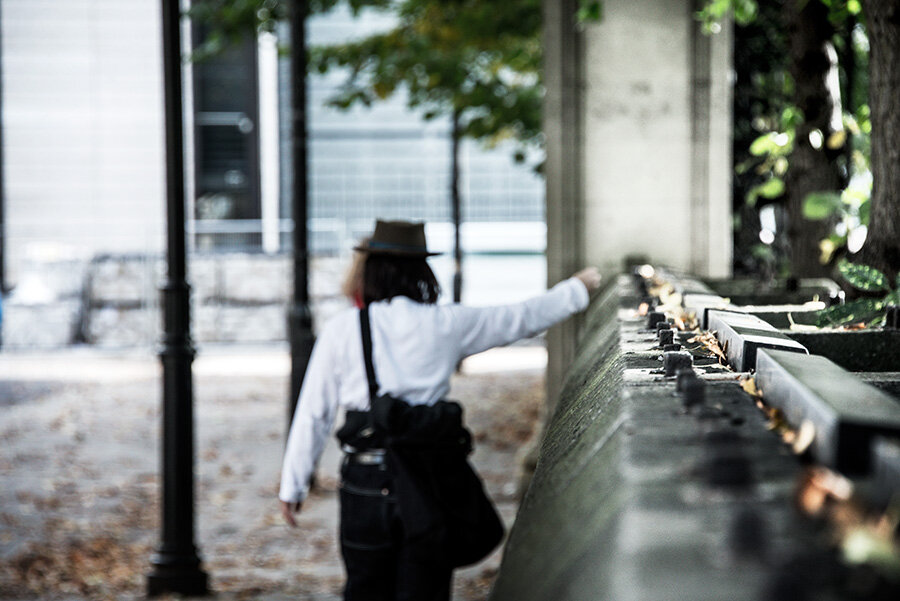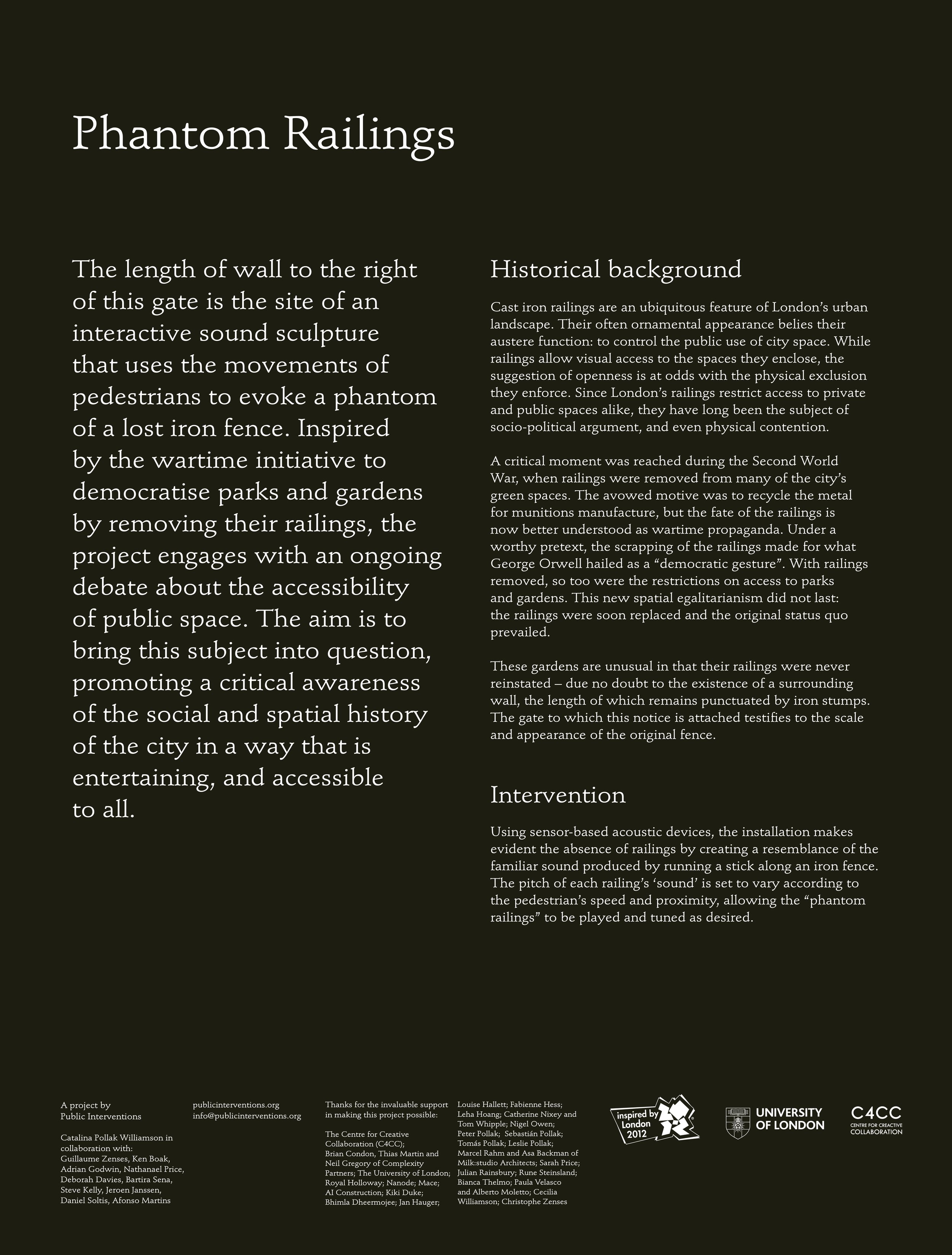
phantom railings
An interactive sound sculpture that uses the movements of pedestrians to evoke a phantom of a lost iron fence. Inspired by the wartime initiative to democratise parks and gardens by removing their railings, the project engages with an ongoing debate about the accessibility of public space.
phantom railings (2012 - 2017)
Malet Street Gardens, Bloomsbury, London.
Collaborators:
Catalina Pollak Williamson, Adrian Godwin, Guillaume Zenses, Steve Kelly, Nathanael Price, Bartira Sena, Ken Boak, Daniel Soltis, Debbie Davis.
Supported by the Centre for Creative Collaboration, University of London and many others through crowdfunding.
Publication:
Pollak Williamson, C. (2015) Outsider: Public Art and the Politics of the English Garden Square. London: common-editions.
Press:
- Carol Biederstadt (2017) ‘Railing against the railings’. Orwell Society.
- Lynne Truss (2014) ‘Railing against the system’. The Telegraph.
- BBC (2012) Chilean artist resurrects 'phantom railings' in London.
Phantom Railings is an interactive public artwork that uses sound to highlight the absence of railings from a Bloomsbury garden square by recreating the ´ghost´ of its lost fence. The installation recalls a particular episode in London’s social (and spatial) history: the removal of railings from London’s private squares as part of the 1940s war effort, the subsequent ‘democratisation’ of green space in the city centre, and the ruling decision to reinstate fences in the newly accessible public spaces.
Between 2012 and 2017, Phantom Railings was installed in Malet Street Gardens, a garden in central London whose railings where removed during the war and, unusually, never replaced, leaving a line of iron stumps along the surrounding wall. Using sensor-based acoustic devices, the installation, traced the movement of pedestrians and translated it into the familiar sound produced by running a stick along an iron fence. The pitch of each railing’s sound was set to vary according to the pedestrian’s speed and proximity, allowing the piece to be ´played´ as desired. The music produced by this urban instrument was captured as a real-time audio-visual score and streamed live to this website.

The pitch of each railing’s sound was set to vary according to the pedestrian’s speed and proximity, allowing the piece to be played as desired.
FREE SQUARES IN LONDON - Two pictures of Bedford square, the first as it is and the second representing it as it would be with railings and shrubs removes. Such a change for London’s squares was recently advocated by Sir Thomas Inskip. Minister for the Coordination of Defence. Daily Telegraph, April, 1937.

Bloomsbury Garden Squares today with their reinstated railings.
















